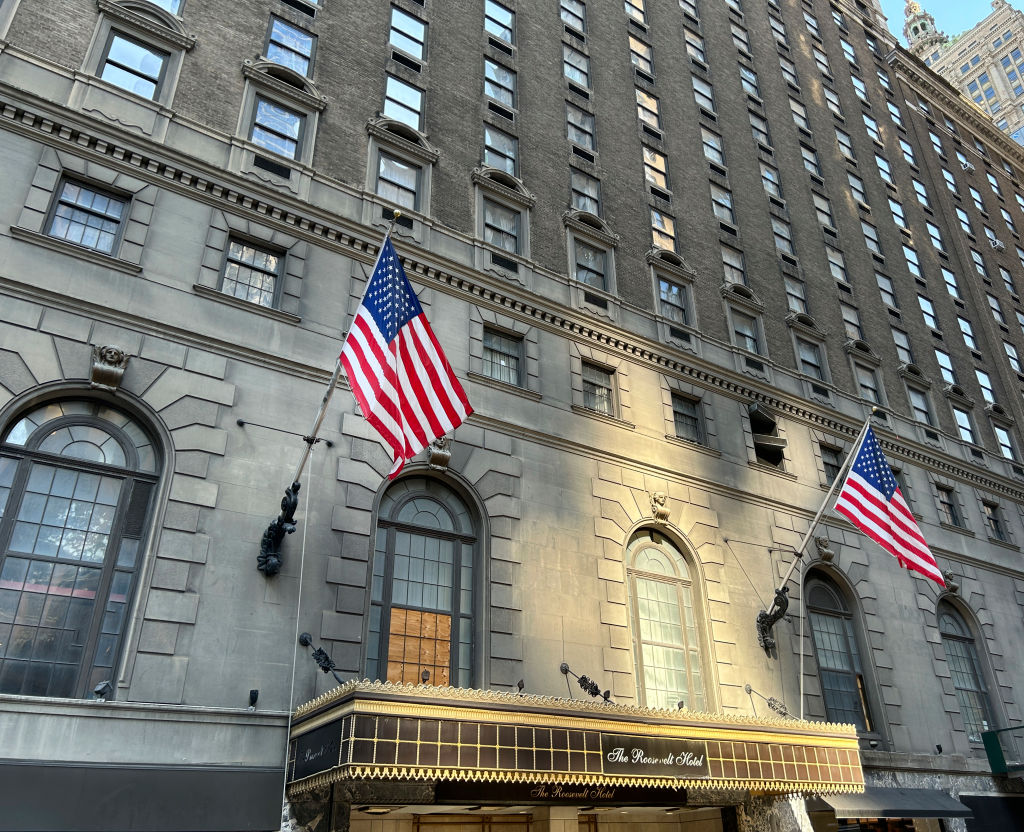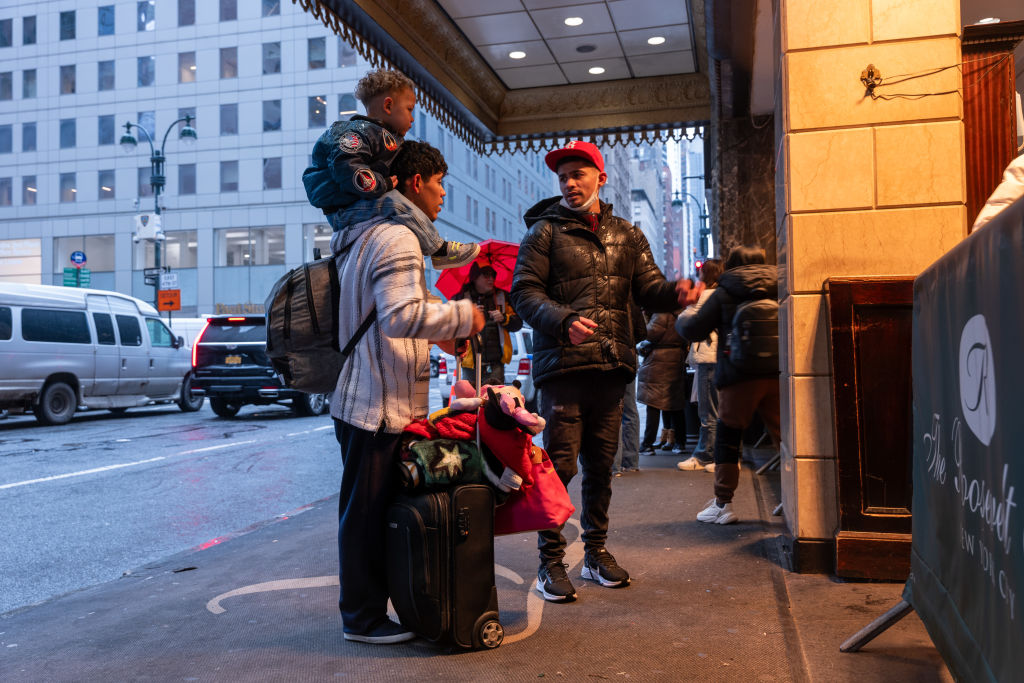In what has emerged as a playbook of sorts for Elon Musk’s government efficiency campaign, the tech billionaire’s team discovers a government spending program it deems objectionable, and the recently appointed leaders of the agency behind the program respond by immediately halting the funding. Recipients of the money, some of them relying on it to reimburse already realized costs, are left in the lurch.
Such was the case last week with a funding program administered by the Federal Emergency Management Agency (FEMA) to support municipalities and local nonprofits in managing the effects of the migrant crisis as hundreds of thousands of people have flooded across the U.S. border with Mexico and into cities across the country in recent years. The Trump administration has now halted the Shelter and Services Program’s (SSP) payments to the New York City government, even clawing back some $80 million in already disbursed funds, and the future of the program remains uncertain.
The controversy kicked off earlier this week when Musk announced February 10 that his team had discovered a $59 million payment from FEMA to New York City using funds appropriated by Congress under SSP. “FEMA sent $59M LAST WEEK to luxury hotels in New York City to house illegal migrants,” Musk claimed in a post on his social media platform. “That money is meant for American disaster relief and instead is being spent on high end hotels for illegals!” The Trump administration’s newly installed acting administrator of FEMA, Cameron Hamilton, thanked Musk for raising the issue, said the funding would be stopped, and that “personnel will be held accountable.”
President Donald Trump echoed Musk’s claim that $59 million of SSP funds were going to pay for stays in luxury New York hotels. New York City officials said that $19 million of the clawed-back funds and $67 million of the total $200 million the city has received from the program for fiscal years 2023 and 2024 have gone towards hotel costs. New York has spent more than $7 billion in the last three years on shelter and services for the 230,000 migrants who’ve come to the city since 2022, according to the city’s comptroller, Brad Lander. He described the Trump administration’s $80 million clawback, which came out of money already in the city’s bank accounts, as “highway robbery” and added that the city was still due another $37 million in SSP funds on top of the $200 million it had already received.
Musk alleged that the hotels were running a “racket,” charging the city double their normal prices with 100 percent occupancy. Over the last few years, there have been multiple examples of the city paying hotels on similar terms as officials dealt with the migrant influx—although a report from the comptroller found that the city had paid an average daily hotel rate of $156 in fiscal year 2024. (For comparison, the U.S. General Services Administration’s per-diem daily lodging assessment for New York City varies, depending on the time of the year, from $179 to $342.) Lander acknowledged the city certainly had waste and oversight issues in its migrant response but argued that the hotel program ran a competitive bidding process.
Regardless of how sound or unsound the city’s hotel contracting choices have been, federal dollars have not footed anywhere near the full bill for hotel rates. SSP has extensive rules governing the type and quantity of eligible expenses that cities and nonprofits can receive funds for, including a stipulation that the reimbursement rate for hotel stays “cannot exceed $12.50 per noncitizen migrant per day.”
Nonetheless, four FEMA employees including the agency’s chief financial officer, Mary Comans, were fired over the payment although the administration did not detail how their actions violated FEMA policies aside from saying the personnel acted insubordinately. A Department of Homeland Security (DHS) spokeswoman said the employees had “circumvented leadership and unilaterally made this payment.”
It’s unclear when DHS and FEMA leadership issued a legal order to stop SSP payments to New York. DHS Secretary Kristi Noem issued a memo on January 28 putting a hold on disbursements to nonprofit organizations that “touch in any way on immigration … except to the extent required by controlling legal authority,” but that memo came before two federal judges put temporary restraining orders on the administration’s efforts to freeze the disbursement of federal assistance across the government.
Hamilton’s recent public statements and reporting on internal FEMA emails suggest that a pause specifically on SSP payments was issued only last week, which would have been after the New York payments in question were disbursed. Hamilton filed a motion on Tuesday seeking authority from the court to pause the FEMA funding, saying in the document, “As of [February 11], the department has paused funding to the Shelter and Services Program.” He said that if he didn’t have authority to suspend the funds, then FEMA would “likely fund criminal activity,” citing reports of Venezuelan gang members being housed at some of New York’s migrant shelters and hotel sites.

Judge John McConnell, responding to Hamilton in a Wednesday order, said that so long as FEMA’s pause “is based on actual authority in the applicable statutory, regulator, or grant terms” it is not precluded by the restraining order on the freeze. On Thursday evening, Hamilton posted a video statement saying FEMA is reviewing “the entire slates of grants and funding that FEMA provides to NGOs.” Neither DHS nor FEMA responded to The Dispatch’s request to confirm whether all SSP grants are now frozen or just the New York funds.
Why has SSP become a target? In the wake of Hurricane Helene, the program came under fire from false online claims amplified by Hamilton, Musk, and Trump, among others, that FEMA was diverting funds away from disaster relief toward illegal immigrants. As a Dispatch Fact Check explained at the time, SSP funds were appropriated by Congress separate from FEMA’s Disaster Relief Fund (DRF), the agency’s main source of money to respond to natural disasters; Congress even separately appropriated money for FEMA’s administration of SSP so that it wouldn’t pull administrative resources away from disaster relief.
The program was created by Congress in 2019 as part of an emergency supplemental appropriations package addressing the border crisis. “It became a bipartisan bill, and we were very happy about it,” Trump said when he signed the package into law in July 2019. It was originally included as an addition to FEMA’s long-established Emergency Food and Shelter Program (EFSP)—a program established in the 1980s to support local governments and nonprofits working with people experiencing hunger and homelessness. The thinking was that FEMA would be best positioned to distribute the funds effectively since it had experience working with local nonprofits and city agencies under the EFSP model, Colleen Putzel-Kavanaugh, an associate policy analyst at the Migration Policy Institute, told The Dispatch.
As part of negotiations over the 2023 appropriations package, the program was renamed to SSP, and its funding switched to come out of the Customs and Border Protection (CBP) budget. To get a sense of the relative scale of SSP, since fiscal year 2019, approximately $1.7 billion has gone to the program. During that same period, FEMA’s disaster fund has received nearly $244 billion, more than 140 times as much as SSP.
SSP originally began with $30 million in funding that went mainly to border communities dealing with migrants that had been released into their towns and cities by DHS because the agency lacked sufficient detention capacity. The money reimbursed local governments and nonprofits, many of them faith-based organizations like Catholic Charities, for the provision of humanitarian assistance to migrants including food, shelter, and basic medical care. Notably, SSP reimburses expenses only for services provided to migrants who have been released by DHS, not migrants who have crossed the border illegally and evaded detention.
Some Republican lawmakers supported the program at its outset. “There’s no question border states like Texas have borne the brunt of our current immigration crisis, and it only makes sense to target federal resources where they’re needed most,” Sen. John Cornyn, a Texas Republican, said in August 2019. “Texans have gone above and beyond in assisting migrants in need of food and shelter, and it’s high time the federal government repays the Texas communities that have diverted their local taxpayer funds to address this crisis at the expense of their usual operations.”
As the migrant crisis worsened, funding for the program increased to several hundred million annually, with most of the money still flowing to border states. When Republican governors in 2022 began busing and flying migrants to the interior, states like New York and Illinois started receiving larger portions of the funds. State and local officials asked the federal government for more support, arguing that the SSP came nowhere near to covering the costs communities were absorbing. In November 2023, as Capitol Hill debated a supplemental foreign aid and border security package, nearly 140 mayors signed a letter asking Congress for $1.4 billion in additional SSP funding, but only $650 million was appropriated for fiscal year 2024.
While SSP has provided tens of millions to big-city governments, many of its grants involve smaller amounts to local organizations. For example, in the fiscal year 2024 funding cycle, a $270,000 grant went to the Opportunity Center for the Homeless in El Paso County, Texas, and a $289,000 award went to the Jericho Road Community Health Center in Buffalo, New York. Putzel-Kavanaugh, the Migration Policy Institute analyst, said many organizations have already been operating in deficits as they await reimbursements from previous years.
“These organizations really filled a gap that has long existed,” Putzel-Kavanaugh, the Migration Policy Institute analyst, said. “It really helped to alleviate a sense of chaos in those border cities, and then, in the interior, as those interior cities began to see more and more people.” It’s unclear whether the administration will go after already allocated SSP awards in places outside of New York City or whether the program will be funded in the next appropriations process.
“In terms of once people are released from [DHS] custody, it was really the only form of federal support for organizations who were supporting them,” she added.







Please note that we at The Dispatch hold ourselves, our work, and our commenters to a higher standard than other places on the internet. We welcome comments that foster genuine debate or discussion—including comments critical of us or our work—but responses that include ad hominem attacks on fellow Dispatch members or are intended to stoke fear and anger may be moderated.
With your membership, you only have the ability to comment on The Morning Dispatch articles. Consider upgrading to join the conversation everywhere.